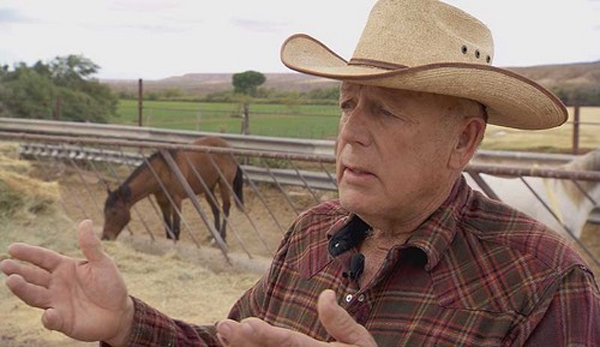Cliven Bundy recently stepped in it with his impolitic racial comments. The unfortunate comments are nevertheless an opportunity to learn some important lessons about American politics.
First, the punditry’s reaction to the comments manifests the success of Critical Race Theory (CRT) in shaping public discourse and policy. CRT maintains:
that racism is engrained in the fabric and system of the American society. The individual racist need not exist to note that institutional racism is pervasive in the dominant culture. This is the analytical lens that CRT uses in examining existing power structures. CRT identifies that these power structures are based on white privilege and white supremacy, which perpetuates the marginalization of people of color. CRT also rejects the traditions of liberalism and meritocracy. Legal discourse says that the law is neutral and colorblind, however, CRT challenges this legal “truth” by examining liberalism and meritocracy as a vehicle for self-interest, power, and privilege. CRT also recognizes that liberalism and meritocracy are often stories heard from those with wealth, power, and privilege. These stories paint a false picture of meritocracy; everyone who works hard can attain wealth, power, and privilege while ignoring the systemic inequalities that institutional racism provides.
Seeping into, if not already permeating, political consciousness is that white racism is the product of a political order predicated on white privilege. If the comments are intolerable, then so too is the society and political order from which those comments emanate. If the likes of Bundy are to be reformed it is essential to reform the society and political system upon which he stands. CRT scholarship is unambiguous about what it considers to be at the heart of racism, white privilege and the free market capitalism that empowers that privilege. It is this perspective that intellectuals have been pounding into impressionable American minds for years.
Discerning Americans should realize that the criticisms directed towards Bundy are not directed at his comments per se, but the fact that he represents a traditional American, e.g., property owner, unquestioned work ethic, religious, distrustful of government, and white. In other words, classical liberalism and its attendant meritocracy are the real targets.
Second, so-called Conservatives distancing themselves from Bundy are in all probability doing so primarily for pragmatic reasons, due to the costs of not doing so. Let’s face the facts. To be deemed a racist in 2014 has serious social, economic, and political consequences. However, abandoning Bundy is actually the abandonment of his standoff with the BLM specifically and the US Government generally. If Bundy was a temporary symbol of a small rebellion against the Leviathan and its agents, all subsequent similar symbols will have difficulty attracting a following. In other words, ranchers and their non-ranching supporters sharing Bundy’s political concerns will be implicitly characterized as racists. To play it safe, one’s bona fides as a non-racist will be to either oppose or stay neutral towards future rancher/BLM standoffs.
Third, the corporate media shapes the debate and therefore public opinion. If one were to do one’s due diligence and listen to Bundy’s comments in their totality, one would come away with a more reasoned response to the same. Bundy responded to a question not as a politician, scholar, or even racist, but as a man frustrated with the public policy status quo. Imagine that he were a farmer in Kentucky and made the same comments about whites living on the dole of government handouts in the hollows of Hardin County. Would the backlash have been the same? I think not.
Fourth, to willy-nilly call someone a racist for political or other gains is unconscionable and cowardly, especially from afar. This tactic should have been expected. Character assassination for political purposes has become the norm in American politics. Bundy’s supporters were first vilified as being terrorists and now as being racists. This double-barreled attack will in all probability prove to be fatal to Bundy’s future opposition to the BLM’s land grab ambitions.
Fifth, Conservative pundits and politicians committed to a free society would benefit to (a) agree to agree on the essentials, (b) agree to tolerate each other on the non-essentials, and (c) agree to have charity, not capitulation, towards all across the political spectrum. One has to wonder, does the demonization of Bundy from so-called Conservative pundits and politicians primarily stem from their enmity towards Bundy’s recent comments or from their affinity for the Leviathan.
And sixth, in 1835 Alexis de Tocqueville observed that “I do not know any country where, in general, less independence of mind and genuine freedom of discussion reign than in America.” Fast forward to 2014. Is America approaching the point “where independence of mind and genuine freedom of discussion” become relics of the past?
The Left’s success in shaping public opinion, qua the racist trump card, has been key to its dominance in the game of politics. The recent Bundy comments were a missed opportunity to call the Left’s bluff, but more significantly manifest the absence of free and open public discourse. In a rigged game with a stacked deck perhaps its time to walk away, i.e., secede, from the game. Unfortunately, there may soon not be enough remaining freedom to consider and/or operationalize such a decision.







